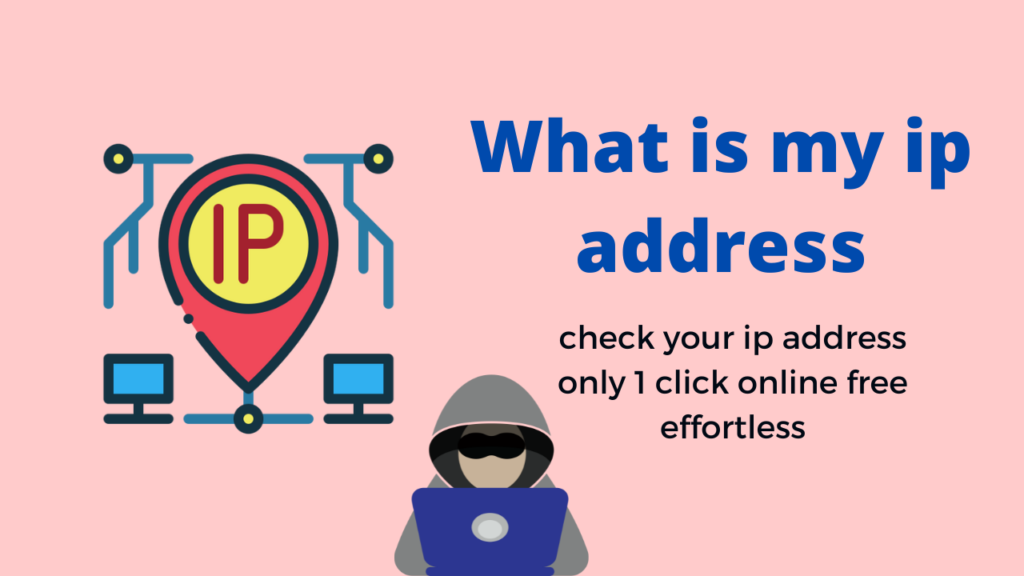- Search Engine Query: Enter “What is my IP address” in a search engine, and the result will display your public IP.
- Command Prompt (Windows): Open Command Prompt, type “ipconfig,” and your IP address, along with network details, will be shown.
- Network Settings (Mac): Navigate to System Preferences, select Network, choose your active connection, and find your IP address.
- Online Tools: Visit an online IP address tool or website offering IP checking services for instant identification.
Toolkits As Per Your Needs

Decoding Digital Identity: A Comprehensive Guide to What Is My IP Address
Introduction:
In the huge scene of the internet, understanding the subtleties of your computerized personality is significant. This complete aide disentangles the mysteries behind the inquiry, “What is my IP address?” We dig into the meaning of this special identifier, how to find it, and why it makes a difference in the digital domain.
Understanding What Is My IP Address:
What Is an IP Address?
An IP address, or Internet Protocol address, is a mathematical mark doled out to every device associated with a PC network that involves the Internet Protocol for correspondence. It serves two essential capabilities: host or network interface recognizable proof and location addressing.
Types of IP Addresses:
- IPv4: The most generally utilized, with addresses addressed as four sets of numbers isolated by periods (e.g., 192.168.1.1).
- IPv6: A newer version because of the consumption of IPv4 addresses, addressed as eight sets of hexadecimal numbers isolated by colons.
How to Find Your IP Address:
- Using Search Engines:
- Simply search “What is my IP address” on popular search engines, and the result will display your public IP address.
- Using Command Prompt (Windows):
- Open the Command Prompt and type “ipconfig.” Your IP address, alongside other network data, will be displayed.
- Using Network Settings (Mac):
- Navigate to System Preferences, select Network, choose your active connection, and your IP address will be displayed.
- Online IP Address Tools:
- Different online tools and sites offer IP address actually looking at administrations. Visit one of these sites, and your IP address will be promptly displayed.
The Significance of Knowing Your IP Address:
- Internet Security:
- Your IP address is a crucial component in securing your online activities. Understanding it enables you to monitor for unauthorized access and potential security threats.
- Online Privacy:
- Realizing your IP address engages you to assume command over your online privacy. It helps with understanding the information that websites and online services can gather about you.
- Network Troubleshooting:
- When facing network issues, knowledge of your IP address is instrumental. It helps in diagnosing connectivity problems and facilitates effective troubleshooting.
- Location Identification:
- IP addresses can be utilized to estimated the geological location of a device. While this has suggestions for privacy, it is additionally valuable for location-based services.
Dynamic vs. Static IP Addresses:
- Dynamic IP Addresses:
- Assigned by the network when a device connects. They can change over time and are more common for residential users.
- Static IP Addresses:
- Assigned manually to a device and do not change. They are typically used for servers and other devices requiring a consistent address.
Protecting Your IP Address:
- Use a Virtual Private Network (VPN):
- A VPN cloak your IP address, giving an extra layer of safety and protection.
- Regularly Check Your IP:
- Monitoring your IP address helps in identifying any unusual activity and ensures the security of your online presence.
- Be Mindful of Online Activities:
- Exercise caution when sharing personal information online to mitigate the risk of compromising your IP address and privacy.
Conclusion:
In the steadily developing computerized scene, understanding “What is my IP address” is a detail as well as a vital part of computerized education. Your IP address is in excess of a progression of numbers; it’s a door to your online presence. By disentangling its complexities, you engage yourself to explore the computerized domain safely, keep up with your privacy, and troubleshoot network issues successfully. Embrace the knowledge of your IP address as a cornerstone of your digital identity.
Popular Tools
- Age Calculator
- Word Count
- Bad & Toxic Backlink Checker
- Link Analysis Tool
- QR Code Generator
- File Downloader
- Internet Speed Test
- Secure Password Generator
- What is my IP
- Audio Recorder
- Text To Speech Converter
- Background Remover
- Screen Recording
- Image Compressor
- Image Resizer
- Drawing Canvas
- Notepad, Create Notes
- Typing Speed Test
- Pie Chart Maker
- Fancy Text Generator
- Website Speed Test
- Digital Signature
FAQ'S
What is my current IP address?
To find your momentum IP address, play out a quest for "What is my IP address" on a web crawler, and the outcome will display it.
How do we find an IP address?
Your IP address can be found through various methods: using search engines, command prompts, network settings, or online IP checking tools.
Is 192.168 my IP address?
192.168 is a common IP address for routers, not your public IP. Use online tools or commands to find your actual IP.
How can I detect my IP address?
Detect your IP by entering "What is my IP address" in a search engine, using command prompts, navigating network settings, or online IP tools.
What is my IPv4 address?
Your IPv4 address is a numerical label assigned to your device on a network.
What is my IP address VPN?
When using a VPN, your IP address is masked for privacy. To find your VPN-assigned IP, search "What is my IP address" online.
What is my IP address WiFi?
Your IP address on WiFi can be found through network settings on your device or by searching "What is my IP address
What is my IP address for my router?
192.168.1.1 or comparable is much of the time the router's IP address. Find your device's IP separately using search engines or online tools.
IP address location?
IP address location indicates the geographical origin of a device online.
What is my private IP?
Your private IP is assigned within your local network. Locate it using command prompts or network settings on your device.
What is my public IP address?
Your public IP, visible on the internet, can be found by searching "What is my IP address" using online tools or commands.
My IP country?
Determine your IP country by searching "What is my IP address" online. The result often includes the country of origin for your IP.
